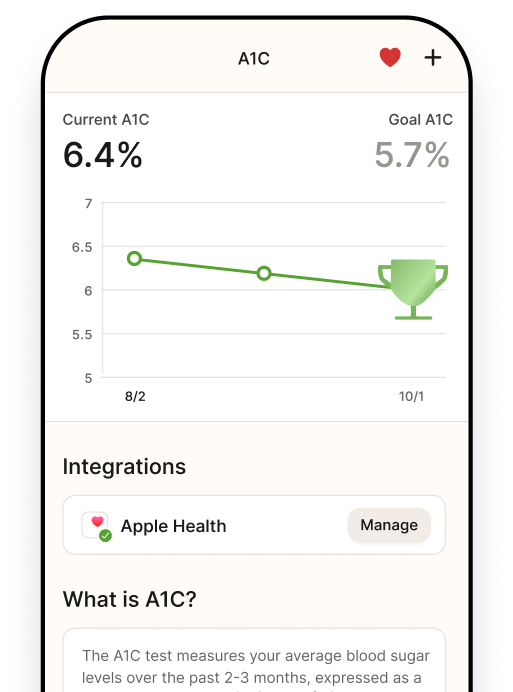Best Nutritionists for Anorexia Near Me
94% of Nourish patients pay $0 out of pocket!


Our team of dietitians can support all areas of your health
Our team of nutritionists are skilled in numerous specialties. Whether your needs revolve around sports, weight loss, a chronic illness, or navigating a pregnancy, our professionals are prepared to provide the right nutritional guidance.









Personalized nutrition planning
We offer virtual one-on-one sessions with dietitians to discuss preventative actions that can be taken to address your health concerns. We educate, assess lifestyle changes, help plan your nutrition, and support our clients toward long-lasting success using personalized nutrition counseling.
Convenient, virtual appointments
Receive the highest quality care wherever you are most comfortable. You get access to your dietitian virtually anytime, anywhere. No more driving to appointments. No more waiting around.
Avoiding future complications
The payoff you’ll see for adjusting your lifestyle with nutrition counseling will be tremendous for your health. You’re less likely to suffer from a heart condition, kidney failure, and other serious conditions with the proper discipline and determination that we help provide.
We’ve got answers.
Still deciding if we’re right for you? These frequently asked questions may help.

How can I find a <Name> dietitian who accepts my insurance?
Nourish has <Name> dietitians in-network with major insurers like Blue Cross Blue Shield, United Healthcare, Aetna and Cigna. 95% of Nourish patients pay $0 when using insurance.
Are video visits with a dietitian online for <Name> covered by insurance?
Check your coverage to see if Nourish accepts your insurance plan.
What to expect during a visit with a dietitian that specializes in <Name>?
During your first appointment with a dietitian, you can expect to review your medical history, eating habits, and lifestyle. You’ll get to know your dietitian and you’ll have the opportunity to ask them any questions you have.
How can I find an online video visit with a dietitian that can help with <Name>?
Nourish offers completely virtual appointments that can help address <Name>.
How can I book a nutrition appointment online for <Name>?
Nourish offers completely virtual nutrition appointments and is covered by insurance. You can find a dietitian that’s right for you and filter by condition.
How can I see a dietitian that can help with <Name>?
Nourish has dietitians that specialize in <Name> that can help. Nourish uses evidence-based, personalized nutrition therapy so you feel your best.
A registered dietitian can also help with the following related <Name> conditions:
What is Anorexia?
While the exact cause of anorexia is unknown, it likely stems from a combination of factors spanning biology, psychology, and environment.
People with anorexia will take extreme measures to continue losing weight or avoid weight gain, such as compulsive exercise, purging food after eating by intentionally vomiting, misusing laxatives, or extreme dieting. Regardless of how much weight is actually lost, you maintain an intense fear of weight gain.
Anorexia affects approximately 1-2% of the global population and is most common among female adolescents and young adults, though it also affects men and is increasingly common among children.
Anorexia is a serious condition that can have severe complications if left untreated, including malnutrition and death. Anorexia also has significantly higher mortality rates and suicide rates than other mental disorders. With treatment, however, you can take back control of your body image and eating habits and manage the risks of living with anorexia.
What’s the Difference Between Anorexia and Bulimia?
The principal difference between anorexia and bulimia is that while a person with anorexia takes extreme measures to lose weight or avoid gaining weight, a person with bulimia employs strategies to consistently purge food from their body after an episode of binge eating by taking laxatives or making themselves throw up. People with anorexia and people with bulimia both tend to fixate on their body weight and shape and have trouble accurately assessing their body image.
Anorexia Signs and Symptoms
Early signs of anorexia are often difficult to recognize. You do not have to be underweight in order to have anorexia. While the physical signs of anorexia are related to starvation, there are typically also behavioral and emotional signs and symptoms of anorexia as well.
While a low weight does not always indicate anorexia, the most common physical sign of anorexia is having a low body weight for your height, sex, and stature. Other physical signs of anorexia include significant weight loss in a short period of time (weeks or months) and extremely thin appearance (emaciation).
The behavioral signs of anorexia center around taking extreme measures to lose weight such as extreme dieting or fasting, compulsive exercise, and self-induced vomiting after eating.
The emotional signs of anorexia tend to focus on body image and self-worth, including a preoccupation with food and weight, frequently skipping meals or refusing to eat in public, and repeated weighing the body or looking in the mirror for perceived flaws.
Causes of Anorexia
While the exact cause of anorexia is unknown, it likely stems from a combination of factors spanning biology, psychology, and environment.
Anorexia can begin as regular dieting that ultimately develops into extreme food restriction and unhealthy weight loss. People with anorexia tend to tie their self-worth to being thin.
Anorexia also often runs in families — children of parents that have eating disorders are significantly more likely to be diagnosed with anorexia themselves. Anorexia is not caused by a lack of willpower or inability to control your behavior, and it’s a very difficult condition to control.
Anorexia Health Risks
The health risks of anorexia are very serious and primarily linked to the medical complications associated with malnutrition and starvations, which can negatively impact nearly every organ in your body. If left unmanaged, severe cases of anorexia can irreversibly damage the function of vital organs like your heart, brain, or kidneys. In the most severe cases, anorexia can cause abnormal heart rhythms (arrhythmias) or an imbalance of electrolytes that can ultimately be fatal.
Other serious long-term health risks associated with anorexia include:
- Irregular heartbeats
- Electrolyte imbalance
- Low blood sugar and seizures
- Anemia
- Loss of bone mass
- Delayed puberty and physical growth
- Infertility
- Insomnia
- Osteoporosis
- Kidney and liver damage
- Low potassium
- Cardiac arrest
- Depression and severe anxiety
- Alcohol use disorder and substance misuse
Anorexia Treatment
The right approach for anorexia treatment typically depends on the severity of your condition as well as your age, overall health, medical history, and other factors. In more severe cases, urgent medical care is needed to address physical health complications.
Nutrition counseling from a registered dietitian that specializes in eating disorders is a critical part of recovering and managing your anorexia. The specialized anorexia treatment team at Nourish will work with you to understand biological, psychological and social contributors to your eating disorder. First and foremost, intervention at a behavioral level is imperative to stop restricting. Secondly, your treatment team will seek to understand the psychological issues that contribute to your eating disorder and help identify and treat root causes.
At Nourish, we have a team of anorexia dietitians that specialize in working with patients at all stages of recovery and patients that have atypical anorexia. We offer nutrition counseling over telehealth and accept insurance in order to make accessing care as easy and affordable as possible. Click here to find your dietitian today and begin your recovery journey.
Best Nutritionists for Anorexia Near Me
94% of Nourish patients pay $0 out of pocket!

80% of patients see health improvements in 30 days

Average weight loss in 4 months among patients with BMI ≥ 30 who lost weight

Average reduction in A1C for patients with A1C ≥ 6.5%

Average reduction in LDL Cholesterol for patients with LDL ≥ 130

of patients see improvements in GI symptoms
A clinically validated program



How it Works



Do more with the Nourish app



Frequently asked questions
Still deciding if we’re right for you? These frequently asked questions may help.
















%20Logo%20-%20vector69.com.svg)


























